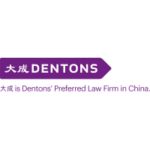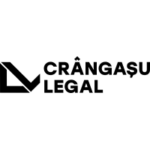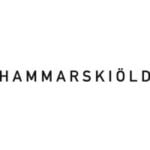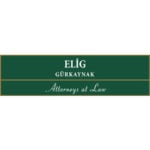-
Overview
German merger control is governed by the Act against Restraints of Competition (ARC). The relevant competition authority for merger control is the ‘Bundeskartellamt’, the Federal Cartel Office (FCO) in Bonn.
A merger control filing is mandatory if the relevant turnover thresholds are met. Besides a turnover-based threshold, a filing can also be triggered if the transaction value exceeds EUR 400 million. While there is no filing deadline, the merging parties may not implement the transaction before clearance. ‘Gun jumping’ can lead to fines of up to 10% of the parties’ global group turnover.
Under German merger control rules, not only the acquisition of control constitutes a notifiable event but also the acquisition of a 25% shareholding, or even below that if the acquirer obtains so-called “competitively significant influence” over the target.
Generally, a notification is not required if the target did not generate any turnover in Germany. However, establishing a joint venture can still trigger a notification obligation in Germany based on the domestic turnover of the parent companies, unless one can show that there are no domestic effects.
The undertakings relevant for turnover calculation and obliged to notify are usually the acquirer and the target undertaking. The seller’s or other shareholders’ turnover are generally not relevant, unless they retain control or a shareholding of 25% or more.
Procedurally, the FCO does not use a standard notification form, but expects information on the undertakings concerned, turnover data, and information on the relevant market.
Non-competition factors such as employment or public interest are generally not considered in merger control proceedings. However, national security and other essential public interests may be reviewed separately under Germany’s foreign investment control regime.
A transaction which has been prohibited by the FCO may be granted ministerial authorisation if it is in the overriding public interest and would benefit the German economy as a whole. This is granted upon application and only in very few exceptional cases.
Where the thresholds of the EU Merger Regulation (EUMR) are met, exclusive jurisdiction lies with the European Commission. However, transactions may be referred to or from the FCO pursuant to the EU Merger Regulation, especially if the transaction largely concerns the German market.
-
Is notification compulsory or voluntary?
A notification is compulsory if the following conditions are met:
- The transaction constitutes a concentration within the meaning of the ARC (see question 4),
- The turnover thresholds set out in the ARC are exceeded OR the transaction value threshold is met OR the notifying undertaking has been issued an extended notification obligation following a sector inquiry (see question 6),
- No exception applies, and
- The transaction does not fall under the exclusive jurisdiction of the European Commission pursuant to the EU Merger Regulation.
The German merger control regime does not foresee voluntary filings. However, parties can submit filings out of caution in case it is not clear whether a filing is actually required.
-
Is there a prohibition on completion or closing prior to clearance by the relevant authority? Are there possibilities for derogation or carve out?
Any legal or factual implementation of a notifiable transaction prior to clearance by the FCO is prohibited and deemed invalid (at least until a later clearance). This includes legal acts such as the transfer of shares or assets, which therefore must be made conditional upon clearance, as well as factual conduct that anticipates the economic effects of the merger such as joint pricing or marketing.
Public bids are generally also subject to the standstill obligation. However, under specific circumstances (e.g., public takeover offer), the acquisition of shares can be completed prior to clearance if the transaction is promptly notified and the voting rights are not exercised.
In theory, parties may restructure a transaction by excluding specific assets or subsidiaries, provided this carve-out does not itself constitute a notifiable concentration, such as by shifting control to a different entity. Multiple transactions between the same parties within a two-year period are generally considered a single concentration for merger control purposes.
Parties can apply for a derogation from the suspension obligation on important grounds, in particular to prevent serious damage to an undertaking concerned or to a third party. In practice, the derogation does not play a major role. In particular for less complex cases, it is often easier to explain the need for a swift clearance decision to the FCO and proceed with a notification.
-
What types of transaction are notifiable or reviewable and what is the test for control?
The German merger control regime considers several types of transactions as ‘concentrations’.
- The acquisition of all or a substantial part of assets of another undertaking. Where not all assets of an undertaking are acquired, the test is satisfied if the assets transferred constitute a distinct and identifiable competitive position in the market – such as a standalone business unit or a specific outlet – and this market position is effectively passed on to the acquirer.
- The acquisition of direct or indirect control by one or several undertakings of the whole or parts of one or several other undertakings.
- The notion of ‘control’ is interpreted in line with EU merger control and refers to the ability to exercise decisive influence. Such influence may arise, in particular, through:
- ownership or the right to use all or part of the assets of the undertaking
- rights or contracts which confer decisive influence on the composition, deliberations or decisions of the corporate bodies of the undertaking. In practice this is assessed by asking whether the acquirer can unilaterally determine, or block, decisions on commercial policy (business plan, budget), investment or divestment, appointment or removal of management etc.
- The acquisition of 25% or 50% of shares in another undertaking. Shares or voting rights previously held by the acquirer or by another undertaking for the acquirer’s account are also taken into account, same as non-voting shares. Note that an increase from 25% or more to 50% or more triggers an (additional) notification requirement. Different from European merger control and most other European jurisdictions, the acquisition of a minority shareholding below the level of control can therefore also constitute a concentration.
- The acquisition of “competitively significant influence” on another undertaking. This usually becomes relevant in cases of the acquisition of less than 25% of the shares. If additional rights or circumstances (such as access to information, co-determination and control options, and superior market and industry knowledge) – so-called “plus factors” – give the acquirer a position similar to that of a shareholder with a 25% stake, this constitutes the acquisition of competitively significant influence. This can already be triggered if it can be expected, based on the nature of the contract and the economic circumstances, that the majority shareholder will take the acquirer’s ideas into consideration or give them free rein, even if this only happens insofar as it does not conflict with their own interests.
As a general rule, intra-group transactions are not notifiable if the ultimate shareholder and its shareholdings / type of control remains the same.
The acquisition of shares by credit institutions, financial institutions, or insurance undertakings for the sole purpose of resale does not constitute a concentration, provided that the acquirer does not exercise the voting rights attached to the shares and disposes of them within one year.
-
In which circumstances is an acquisition of a minority interest notifiable or reviewable?
The acquisition of a minority shareholding must be notified if it constitutes a concentration within the meaning of the German merger control regime (see question 4).
Even if the minority shareholding does not convey decisive influence in the sense of “control”, it can still be notifiable if either at least 25% of the shares or voting rights are acquired or – even below the 25% threshold – the acquisition leads to material competitive influence.
-
What are the jurisdictional thresholds (turnover, assets, market share and/or local presence)? Are there different thresholds that apply to particular sectors?
A transaction must be notified to the FCO in three cases:
(1) Turnover Threshold
A transaction is notifiable if in the last completed business year:
- the combined worldwide turnover of all undertakings concerned was more than EUR 500 million, AND
- the domestic German turnover of at least one undertaking concerned was more than EUR 50 million, AND
- and the domestic German turnover of another undertaking concerned was more than EUR 17.5 million.
(2) Transaction Value Threshold
In case the turnover threshold is not met, a transaction is still notifiable if:
- the combined worldwide turnover of all the undertakings concerned was more than EUR 500 million, AND
- in the last business year preceding the transaction:
- the domestic turnover of one undertaking concerned was more than EUR 50 million, AND
- neither the target undertaking nor any other undertaking concerned achieved a domestic turnover of more than EUR 17.5 million, AND
- the consideration for the acquisition exceeds EUR 400 million, AND
- the target undertaking has substantial operations in Germany.
Whether or not a target has “substantial operations in Germany” has to be assessed on a case-by-case basis. As a general rule, if the market position of the target is greater than its (below-threshold) turnover suggests, it might be deemed to have substantial operations in Germany. This can, e.g., be the case if the target offers its services for free or is mainly engaged in research & development.
(3) Extended Notification Obligation Order
In case neither the turnover nor the transaction value threshold is met, a transaction can still be notifiable under certain circumstances: Following a sector inquiry, the FCO may order temporary extensions of the notification obligation on individual companies if it found that there were objectively plausible indications that future concentrations could significantly impede effective competition in Germany. In this case, the addressee of the order is required to notify within three years of service of the decision all concentrations which meet the following criteria:
- the concentration concerns an economic sector which was subject to the sector inquiry, AND
- the domestic turnover of the acquiring undertaking was more than EUR 50 million in the last business year, AND
- the target undertaking’s domestic turnover was more than EUR 1 million in the last business year.
Generally, the ‘undertakings concerned’ are the acquirer and the target. The turnover of the seller or another shareholder in the target is only relevant if:
- the seller(s) / the other shareholder(s) remain(s) a controlling or jointly controlling shareholder of the target
OR
- the seller(s) / the other shareholder(s) maintain(s) a shareholding of 25% or more in the target after the transaction.
Even if the turnover thresholds are technically met, transactions involving a joint venture without local turnover may be exempt from a notification obligation if the transaction has no appreciable domestic effect (see question 11).
Lastly, transactions are exempt from the obligation to notify if
- it results from the consolidation of public institutions and enterprises in connection with a municipal territorial reform; or
- all parties to the merger are members of a cooperative group of financial institutions and primarily provide services to other members of that group and do not to maintain direct contractual relationships to end customers; or
- the merger concerns the hospital sector and fulfils certain additional requirements (also see question 35).
-
How are turnover, assets and/or market shares valued or determined for the purposes of jurisdictional thresholds?
The relevant figure is the net turnover achieved in the last financial year completed before the transaction (audited reports are not necessarily required). Intra-group sales and excise taxes are not taken into account.
The turnover is calculated based the German Commercial Code unless the undertaking uses another internationally recognised accounting standard.
For certain economic sectors, there are special rules for turnover calculation:
- For trade in goods, only ¾ of the turnover achieved are to be taken into account.
- Tor the publication, production and distribution of newspapers, magazines and parts thereof, four times the amount of the turnover is to be taken into account.,
- For the production, distribution and broadcasting of radio and television programmes, and the sale of radio and television advertising time, eight times the amount of the turnover is be taken into account.
In Germany, the rules for turnover allocation largely mirror those of the EU Merger Regulation. As a general principle, turnover is attributed to the location where the product is delivered or the service is rendered – typically, this corresponds to the customer’s location.
-
Is there a particular exchange rate required to be used for to convert turnover thresholds and asset values?
Notifying parties must use the average exchange rate of the European Central Bank for the respective year.
-
In which circumstances are joint ventures notifiable or reviewable (both new joint ventures and acquisitions of joint control over an existing business)?
Merger control rules apply to joint ventures as well. This includes both the creation of new joint ventures and the significant transfer of assets to an existing joint venture. Under German merger control, there is no distinction between full-function and non-full-function joint ventures. As long as the relevant turnover thresholds are met by the parent companies and/or the joint venture and the transaction qualifies as a concentration, it is subject to merger control.
-
Are there any circumstances in which different stages of the same, overall transaction are separately notifiable or reviewable?
Two or more transactions between the same (group of) undertakings within a period of two years are treated as a single concentration if, as a result, the turnover thresholds are reached, or the conditions of the transaction value threshold are fulfilled. The relevant date to determine whether a notification is required is the date of the last transaction.
-
How do the thresholds apply to “foreign-to-foreign” mergers and transactions involving a target / joint venture with no nexus to the jurisdiction?
Foreign-to-foreign mergers must be notified to the FCO if they meet the jurisdictional thresholds and have an appreciable impact on domestic competition (domestic effects). This is always the case if, technically, there are only two companies involved in the transaction and the thresholds are met, or if the acquirer and the target meet the turnover thresholds.
For transactions involving more than two companies (e.g., joint venture scenarios) in which the target’s turnover / activities are below the thresholds, the FCO published a guidance letter on domestic effects which explains under which circumstances a domestic effect can typically be ruled out. For other cases, it lays out criteria for a case-by-case assessment.
For example, a notification is generally not required in case a newly formed joint venture will not be active in the (or part of the) German market or a market encompassing Germany, and its parent undertakings are not current or potential competitors in Germany either on the relevant product market of the joint venture or an upstream or downstream market.
-
For voluntary filing regimes (only), are there any factors not related to competition that might influence the decision as to whether or not notify?
Not applicable.
-
What is the substantive test applied by the relevant authority to assess whether or not to clear the merger, or to clear it subject to remedies?
The substantive test is whether the concentration would significantly impede effective competition . This is the case in particular if the transaction is expected to create or strengthen a dominant position (rebuttable statutory presumption applies if combined market share is 40% or more).
The test is similar to EU merger control. The FCO’s prohibition or clearance decision is a predictive assessment of the possible effects of the transaction over a period of several years and considers horizontal, vertical, unilateral and coordinated effects arising from the merger.
In contrast to the provisions of EU merger control, the German merger control regime expressly provides for three exceptions.
- The FCO cannot prohibit a merger, even if it were to significantly impede effective competition, if the parties can show that the merger will improve competition conditions and that these improvements will outweigh the disadvantages of the impediment.
- If the merger only concerns a de-minimis market, the FCO cannot issue a prohibition in relation to this market. This is the case if the transaction concerns a market which has existed for more than five years and whose market volume in Germany is less than EUR 20 million.
- The last exception applies to small and mid-sized press companies which incurred a significant loss in the last three years prior to the transaction, and which could not economically survive without the transaction.
-
Are factors unrelated to competition relevant?
The FCO does generally not take non-competition factors into account when conducting its assessment.
Only in exceptional circumstances, when the FCO has already prohibited a transaction, the notifying parties can apply for a so-called ministerial authorisation. The Federal Minster of Economic Affairs and Energy can authorise the transaction if the restraint of competition is outweighed by advantages to the economy as a whole or if it is justified by an overriding public interest. This instrument is only used in rare cases.
-
Are ancillary restraints covered by the authority’s clearance decision?
Strictly speaking, ancillary restraints are formally not covered by the FCO’s clearance decision.
It is not uncommon for the FCO to explicitly state that its decision does not include an assessment under the cartel prohibition. The authority often reserves the right to review any agreements not covered by the decision at a later stage. The FCO can only raise concerns regarding a potential violation of the cartel prohibition either informally or through separate proceedings.
As regards restrictions directly related and necessary to concentrations, there is however no substantive difference to EU merger control. In particular, non-compete obligations that are objectively necessary in terms of the subject matter, the territorial scope and their duration, and that are to the detriment of the seller, do not violate the cartel prohibition.
-
For mandatory filing regimes, is there a statutory deadline for notification of the transaction?
Notification is mandatory prior to implementation; otherwise there is no deadline.
-
What is the earliest time or stage in the transaction at which a notification can be made?
Filings are possible even prior to signing an SPA or an equivalent transaction document. The parties need to be able to demonstrate that they are seriously interested in the transaction and that the structure of the transaction is essentially fixed (i.e., percentage of shares / form of control to be acquired). For this purpose, a letter of intent or a similar document can be helpful but is not strictly required.
To “start the clock”, the parties need to submit all legally required information and documents.
-
Is it usual practice to engage in pre-notification discussions with the authority? If so, how long do these typically take?
Engaging with the FCO prior to filing is not standard procedure and is usually only done in transactions that might raise concerns. In these situations, initiating discussions at an early stage and providing comprehensive information can significantly reduce the risk of a Phase II review. Such exchanges are generally handled with confidentiality by the FCO.
-
What is the basic timetable for the authority’s review?
There are two different phases in merger control proceedings before the FCO. Most cases are resolved in Phase I, in which the FCO has one month from the submission of a complete notification to take a decision. Over 95% of the notifications are cleared during this initial phase. If no decision is issued within this period, the merger is automatically deemed cleared.
If the transaction raises concerns or requires further assessment, the FCO may request additional data or contact market participants – without stopping the clock. If concerns persist, the FCO may initiate Phase II (Hauptprüfungsverfahren), allowing for a more detailed review. The combined duration of Phase I and Phase II is five months, starting from the date of complete notification. If no decision is made within this timeframe, the merger is presumed cleared. This period may be extended with the parties’ consent, which is often done in complex cases.
In Phase II, commitments can be proposed at any stage, provided there is sufficient time for review and market testing.
If a transaction is not notified before closing, the FCO may initiate a post-closing review based on a notification containing the same information as a standard filing. There is no fixed timeline for such reviews, and the FCO may impose fines or order a de-merger.
-
Under what circumstances may the basic timetable be extended, reset or frozen?
The review periods only begin once the FCO has received all the information required by law. There is no statutory mechanism to extend these deadlines and normal requests for information do not stop the clock.
However, the FCO and the notifying parties may agree to extend the review period beyond the standard five months. Where remedies are proposed to address competition concerns and these proposals are submitted by one of the involved undertakings, an additional month may be added to allow for their assessment.
If a party fails to respond fully or accurately to a formal request for information without fault or negligence, the review timeline is paused (‘stop-the-clock’).
Clearance decisions obtained on the basis of false or incomplete information are not immune from later scrutiny. The FCO may revisit such cases and potentially require new commitments or initiate de-merger proceedings. Additionally, if a court later determines that the original clearance decision was based on a factual or legal error, the review process may be restarted from the beginning.
-
Are there any circumstances in which the review timetable can be shortened?
German merger control does not provide for a possibility to shorten the statutory timetable. In practice, the FCO may, however, issue a decision before the review deadline expires. If the workload of the FCO permits this, this is often the case, especially in unproblematic Phase I cases.
-
Which party is responsible for submitting the filing?
Under German law, all undertakings concerned are generally responsible for notifying the transaction to the FCO. The review process begins as soon as one of the obligated parties submits a complete notification. Joint filings or parallel submissions by all parties are not necessary.
In practice, the parties usually coordinate and one of them (often the acquirer) files on behalf of all parties.
-
What information is required in the filing form?
There is no standardized form for merger control filings. Consequently, there is no official short-form filing. In practice, the length and detail of the filing depend largely on the complexity of the case.
A standard merger notification must, at a minimum, include details about the undertakings concerned (in particular a group chart and overview of all undertakings under control), the sectors in which they operate, turnover figures (national, EU-wide, and global – or alternative metrics where turnover is not applicable), market share estimates along with an explanation of the methodology used, the percentage of shares acquired in case of a share deal, and relevant contact information.
-
Which supporting documents, if any, must be filed with the authority?
There is no formal obligation to submit supporting documents with the notification. It is customary for the filing to be signed, which may be done by a legal representative or outside counsel. A formal power of attorney is generally not required unless the case proceeds to Phase II.
-
Is there a filing fee?
There is a filing fee, which the FCO sets at its discretion also based on the effort required to review a given transaction. While the fee can reach up to EUR 50,000 (or EUR 100,000 in exceptional cases), it typically ranges between EUR 5,000 and EUR 15,000 for straightforward cases. The final amount depends on factors such as the legal complexity of the case, the size of the involved companies, and in particular the transaction’s economic significance.
-
Is there a public announcement that a notification has been filed?
The FCO regularly publishes a list of all ongoing merger control proceedings. However, the list only provides limited information, such as the parties involved and the affected markets. Requests for confidentiality are granted only in very exceptional cases.
-
Does the authority seek or invite the views of third parties?
The FCO regularly reaches out to third parties, namely customers, suppliers and competitions, especially when a transaction raises concerns. The FCO normally does so by sending out requests for information where third parties often have to provide their view on the relevant markets and on the envisaged transaction.
Apart from that, any third party may submit informal observations on a proposed transaction at any time. However, to formally participate in the proceedings, a third party must apply for formal admission (Beiladung) by demonstrating that the decision would significantly affect its interests, which is typically the case for direct competitors. Once admitted, the third party gains procedural rights, including access to documents and the right to be heard.
Third parties usually seek formal admission to prompt the FCO to open Phase II proceedings because a Phase I clearance cannot be challenged. Formal participation is a prerequisite for appealing a Phase II clearance decision in court.
During Phase II, the FCO typically consults with selected market participants, such as competitors, customers, or suppliers, especially in the context of remedy proposals. The FCO is not obligated to consult third parties in cases that clearly do not raise competitive concerns, and it has discretion in deciding whom to involve.
-
What information may be published by the authority or made available to third parties?
The parties’ notification or Phase I decisions are not published by the FCO. If the FCO is of the view that a decision in Phase I is of particular interest for the public, it releases a short press release with its reasoning and/or a more substantive case report summarising the case.
Phase II decisions usually will be published as a redacted version by the FCO on its website. often preceded by an explanatory press release. The parties have the chance to highlight business secrets and personal information so that this type of information will be kept strictly confidential.
Apart from that, the FCO releases an annual report which always includes details on particularly noteworthy cases.
-
Does the authority cooperate with antitrust authorities in other jurisdictions?
The FCO cooperates closely with antitrust authorities in other jurisdictions. Within the European Union, this cooperation takes place primarily through the European Competition Network (ECN), which facilitates the exchange of information and coordination in merger cases with cross-border relevance.
The FCO also engages in international cooperation through networks such as the International Competition Network (ICN), the Organisation for Economic Co-operation and Development (OECD), and the United Nations Conference on Trade and Development (UNCTAD). Information exchange may occur on a case-by-case basis.
Finally, the FCO maintains working relationships with numerous foreign authorities and has entered into formal cooperation agreements, including a long-standing memorandum of understanding with the United States. These agreements aim to promote coordination and policy dialogue but do not override national confidentiality rules.
In cases of parallel reviews, the FCO may request that the parties grant a waiver of confidentiality to allow the exchange of information with foreign authorities. While parties are not legally required to provide such waivers, refusing to do so may impede cooperation, cause procedural delays, and limit the efficiency of the review process. However, there are no formal legal consequences for declining to grant a waiver.
-
What kind of remedies are acceptable to the authority?
The FCO can issue clearance decisions subject to conditions and requirements, which are often discussed and agreed upon in advance between the FCO and the merging parties.
While clearances subject to remedies are relatively rare in German, the most common remedy is the divestiture of a part of the business in relation to which competition concerns exist. Remedies can be implemented as either a condition precedent or a condition subsequent. The FCO generally favours the condition precedent, as this facilitates the quick conclusion of the divestiture. In that case, the clearance is subject to the prior completion of the divestiture. Furthermore, the FCO must approve potential buyers and may conduct market tests in order to determine their suitability. To be considered suitable, an acquirer must have the necessary industry knowledge and experience as well as the financial resources required to successfully manage the acquired business in a competitive environment.
Depending on the specifics of the case, the FCO may accept a range of remedies beyond structural divestments. These can include licensing arrangements, granting access to essential inputs or infrastructure, or modifying or terminating certain contractual agreements. In practice, behavioural remedies are rarely accepted and generally only considered if they are demonstrably effective and do not require ongoing monitoring of the undertaking’s conduct by the FCO.
If the parties do not want to comply with the remedies, they can still withdraw from the merger.
On its website, the FCO has published both a Guidance on Remedies in Merger Control and model texts for various remedies.
-
What procedure applies in the event that remedies are required in order to secure clearance?
It is the responsibility of the parties to put forward their remedy proposals. The FCO is not obliged to suggest remedies to the parties. Proposals by the parties can be submitted at any time, even during the initial review phase. However, they usually only emerge once the FCO has finished its preliminary assessment and expressed its concerns, typically in Phase II.
Any proposal must be submitted well before the statutory deadline for the in-depth review, to allow the FCO to evaluate its effectiveness. At this stage, the authority will usually conduct market tests by sending non-confidential summaries of the proposed remedies to key customers and competitors, either informally or with a formal request for information (which carries an obligation to reply and fines for non-compliance).
The first submission of a remedy proposal automatically extends the Phase II deadline by one month, but further revisions do not trigger additional deadline extensions. The parties may agree to extend the review period further. In the absence of such an agreement, the FCO must clear or prohibit the merger based on the information and commitments in the record.
A conditional clearance will only be granted if the merging firms have proactively offered suitable remedies. Otherwise, the FCO’s choice is limited to an unconditional approval or prohibition. In multijurisdictional cases, the FCO will often seek confidentiality waivers to coordinate remedies with other authorities and avoid conflicting commitments.
-
What are the penalties for failure to notify, late notification and breaches of a prohibition on closing?
Failure to notify and implementation of the merger before clearance are treated identically as they constitute a breach of the stand-still obligation. In practice, the FCO holds entities regardless of whether the merging parties are domestic or foreign. While fines are rare, they are usually imposed (only) on the acquirer.
Any unlawful implementation of a merger prior to clearance may result in administrative fines. Natural persons may face fines of up to EUR 1 million, while undertakings may be fined up to 10% of their global turnover in the preceding financial year. The precise amount is calculated based on to the seriousness and duration of the infringement and the degree of intent or negligence. There are no criminal penalties for gun-jumping, but the FCO may issue interim orders to halt implementation steps and carry out inspections.
Implementing a merger without clearance not only incurs monetary sanctions but also renders the transaction provisionally invalid (schwebend unwirksam), exposing the parties to forced divestiture or dissolution orders to restore the pre-merger situation. To minimise the risk, parties should assess notification requirements at the outset, file well before any planned closing – ideally at least one month in advance – avoid any change of control or integration beyond routine preparations, and seek informal confirmation or guidance before proceeding where uncertainty persists.
-
What are the penalties for incomplete or misleading information in the notification or in response to the authority’s questions?
Any party that knowingly or negligently provides incomplete or incorrect information in a notification is committing an administrative offence. Individuals may be fined up to EUR 100,000, and each undertaking involved may face penalties of up to 1% of its worldwide group turnover in the preceding financial year. If the intention was to secure clearance, avoid a prohibition decision or prevent a Phase II review, the FCO may increase the fine to as much as 10% of the undertaking’s worldwide turnover.
In this case, a clearance ceases to apply if it has been granted due incomplete or incorrect information. A decision issued may be formally revoked or amended.
The same fining regime applies to incorrect or incomplete information provided in response to the FCO’s formal requests for information, but not to informal queries.
-
Can the authority’s decision be appealed to a court?
Only the FCO’s decision in Phase II can be appealed to the Düsseldorf Higher Regional Court. The appeal must be filed within one month starting from the day the parties have received the FCO decision.
In this case, the Düsseldorf Higher Regional Court acts as both the court of fact and the court of law. Subject to admission, an appeal to the Federal Court of Justice (BGH) is possible against decisions of the Higher Regional Court of Düsseldorf. This is limited to the review of legal issues and must also be filed within a month from the Court’s decision. All parties formally involved are authorised to appeal, including formally admitted third parties (see question 27). If the Düsseldorf Higher Regional Court has not authorised an appeal on points of law, this can be contested by appealing against the refusal to grant admission to appeal. This is also decided by the BGH.
The duration of appeal proceedings varies with the complexity of the case. Timelines of six to twelve months are typical, though longer proceedings occur. Appeals before the Federal Court of Justice usually take between one and three years.
-
What are the recent trends in the approach of the relevant authority to enforcement, procedure and substantive assessment?
In 2024, the FCO reviewed 870 merger notifications of which only nine went into Phase II. The authority concluded eight Phase II investigations in 2024 and issued three unconditional clearances and one prohibition in Phase II. In the four other cases, the notifications were withdrawn. This means that more than half of Phase II cases failed in 2024.
No measures have yet been issued following sector inquiries, for which the FCO recently gained broader powers. So far, the issuance of an extended notification obligation (see question 6) has only been considered for the municipal waste sector. However, the deadline for issuing such a measure expired at the end of June 2025. It therefore appears that the FCO is hesitant to issue measures, even when it identifies market conditions in which future concentrations could possibly significantly impede effective competition.
As part of the recent reforms under the Hospital Care Improvement Act (Krankenhausversorgungsverbesserungsgesetz, KHVVG), a new exemption from German merger control has been introduced for certain hospital mergers. The FCO will no longer be responsible for assessing a merger if the relevant state health planning authority (Landeskrankenhausplanungsbehörde) confirms in writing that the transaction is necessary for improving hospital care and does not raise any other competition concerns. This exemption applies to cross-site hospital mergers or specialisation mergers and is valid for transactions completed by 31 December 2030.
In its recent Meta/Kustomer ruling, the German Federal Court of Justice clarified what constitutes a substantial operation in Germany in the context of the transaction value threshold. The court held that neither local revenue nor legal presence are required, and that only marginal cases are excluded. Instead, back-end data processing involving German end users may suffice if it could potentially impact competition in Germany. The decisive factor is not whether this activity is currently monetised or legally permissible under data protection rules, but whether it could play a strategic role in future competitive conduct in the German market.
In Microsoft/Inflection, the FCO generally held that the takeover of almost all employees of another undertaking may be subject to merger control in Germany. In the case at hand, it concluded, however, that a German notification was not required since the target was not active in Germany and therefore had no substantial operations in Germany.
-
Are there any future developments or planned reforms of the merger control regime in your jurisdiction?
The German government has expressed its ambition to give greater weight to maintaining the competitiveness of German and European undertakings as well as to security and defence considerations, both at national and EU level. However, it remains unclear how such factors will be incorporated into merger control and on what legal basis.
There are no concrete plans or efforts to amend the ARC at present. It is generally expected that the turnover thresholds could be increased in the near future whereas the transaction value threshold could be decreased to EUR 300 million, and could be extended to cases in which the target is not active in Germany yet, but could potentially become active.
Germany: Merger Control
This country-specific Q&A provides an overview of Merger Control laws and regulations applicable in Germany.
-
Overview
-
Is notification compulsory or voluntary?
-
Is there a prohibition on completion or closing prior to clearance by the relevant authority? Are there possibilities for derogation or carve out?
-
What types of transaction are notifiable or reviewable and what is the test for control?
-
In which circumstances is an acquisition of a minority interest notifiable or reviewable?
-
What are the jurisdictional thresholds (turnover, assets, market share and/or local presence)? Are there different thresholds that apply to particular sectors?
-
How are turnover, assets and/or market shares valued or determined for the purposes of jurisdictional thresholds?
-
Is there a particular exchange rate required to be used for to convert turnover thresholds and asset values?
-
In which circumstances are joint ventures notifiable or reviewable (both new joint ventures and acquisitions of joint control over an existing business)?
-
Are there any circumstances in which different stages of the same, overall transaction are separately notifiable or reviewable?
-
How do the thresholds apply to “foreign-to-foreign” mergers and transactions involving a target / joint venture with no nexus to the jurisdiction?
-
For voluntary filing regimes (only), are there any factors not related to competition that might influence the decision as to whether or not notify?
-
What is the substantive test applied by the relevant authority to assess whether or not to clear the merger, or to clear it subject to remedies?
-
Are factors unrelated to competition relevant?
-
Are ancillary restraints covered by the authority’s clearance decision?
-
For mandatory filing regimes, is there a statutory deadline for notification of the transaction?
-
What is the earliest time or stage in the transaction at which a notification can be made?
-
Is it usual practice to engage in pre-notification discussions with the authority? If so, how long do these typically take?
-
What is the basic timetable for the authority’s review?
-
Under what circumstances may the basic timetable be extended, reset or frozen?
-
Are there any circumstances in which the review timetable can be shortened?
-
Which party is responsible for submitting the filing?
-
What information is required in the filing form?
-
Which supporting documents, if any, must be filed with the authority?
-
Is there a filing fee?
-
Is there a public announcement that a notification has been filed?
-
Does the authority seek or invite the views of third parties?
-
What information may be published by the authority or made available to third parties?
-
Does the authority cooperate with antitrust authorities in other jurisdictions?
-
What kind of remedies are acceptable to the authority?
-
What procedure applies in the event that remedies are required in order to secure clearance?
-
What are the penalties for failure to notify, late notification and breaches of a prohibition on closing?
-
What are the penalties for incomplete or misleading information in the notification or in response to the authority’s questions?
-
Can the authority’s decision be appealed to a court?
-
What are the recent trends in the approach of the relevant authority to enforcement, procedure and substantive assessment?
-
Are there any future developments or planned reforms of the merger control regime in your jurisdiction?





















